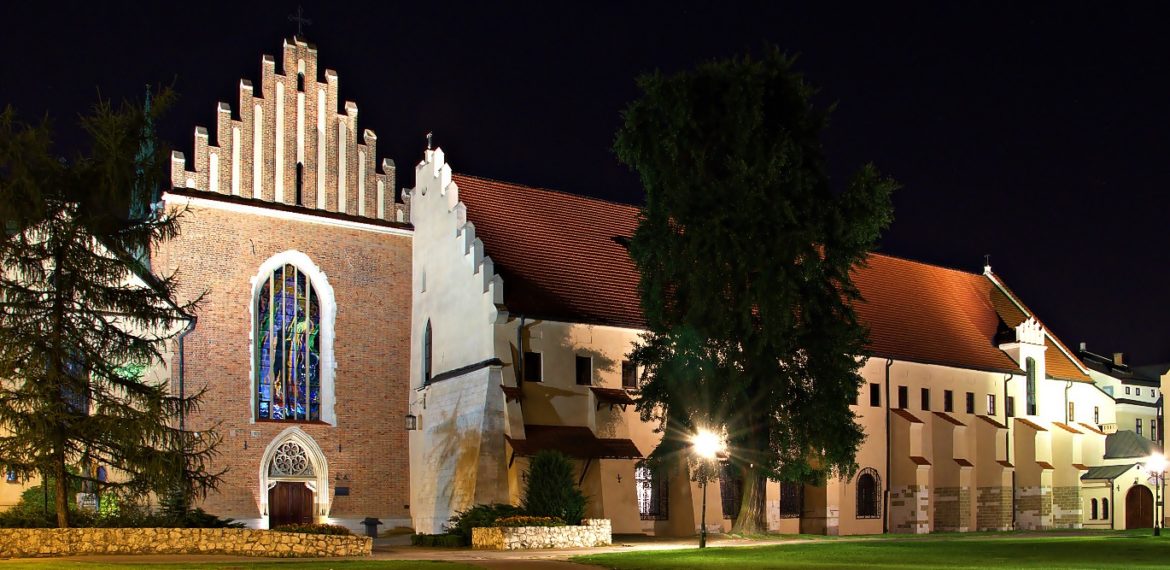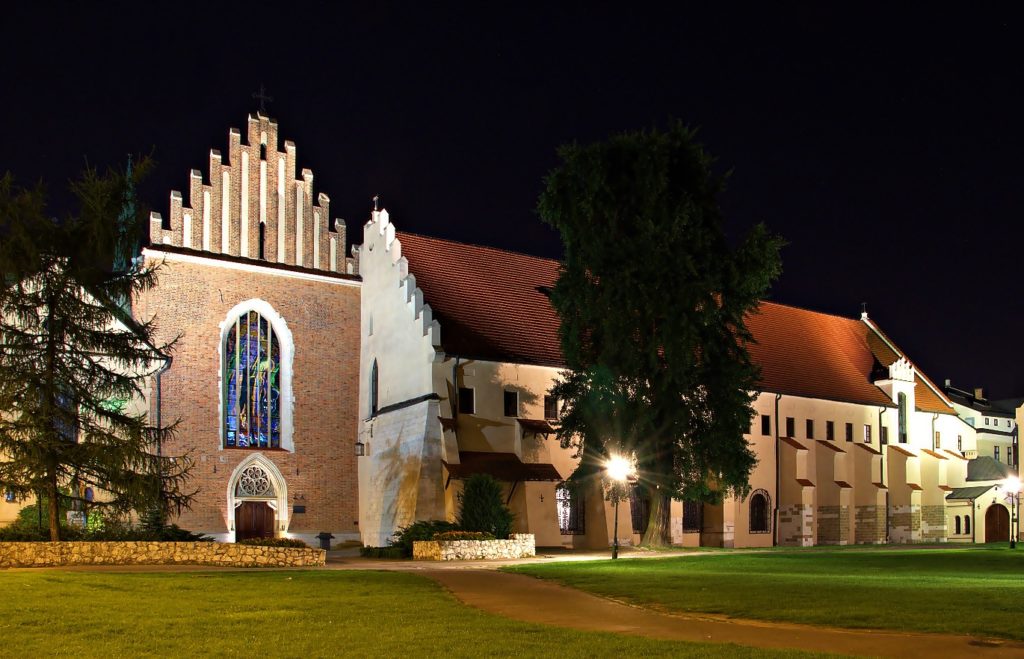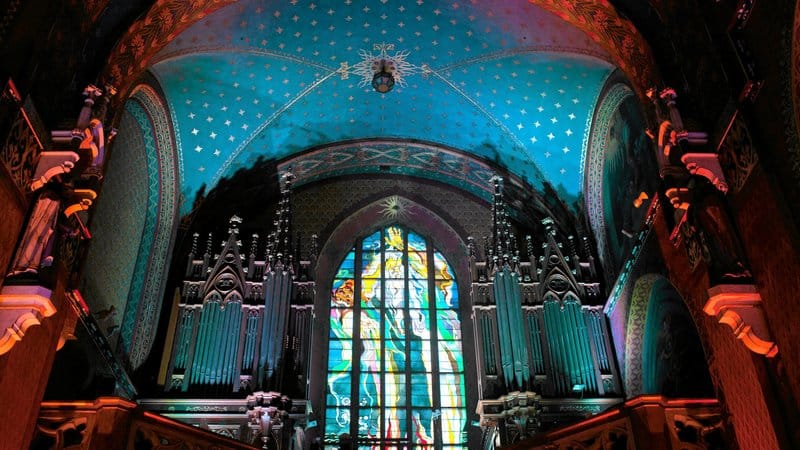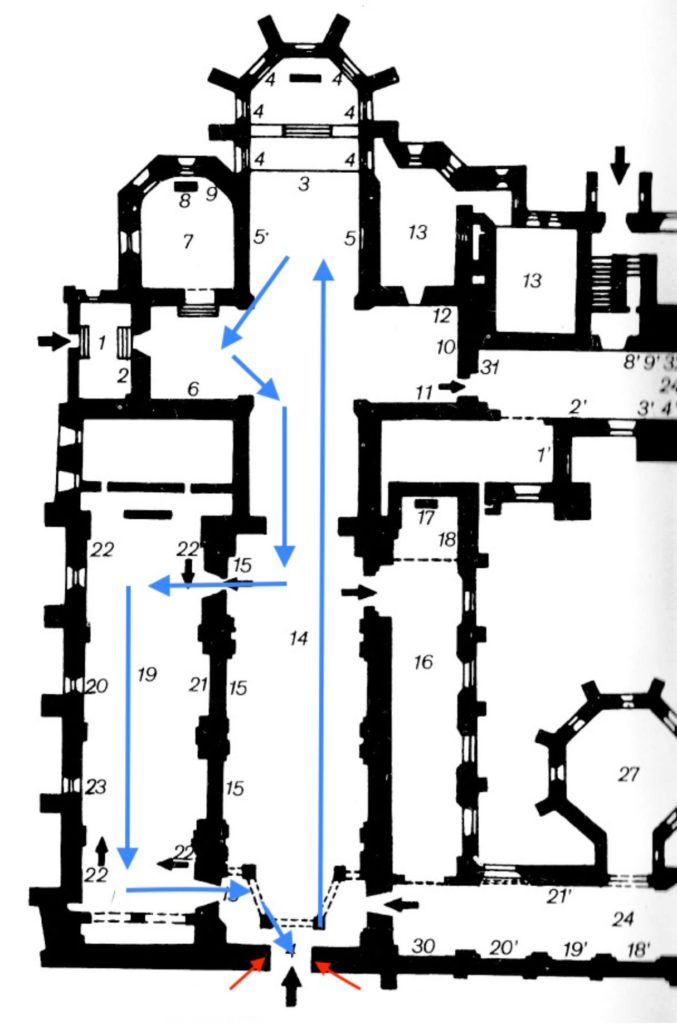Contents
Church of St. Francis of Assisi is one of the first tall brick-and-sandstone buildings in Krakow. It was built between 1237 and 1269. Its founding is connected with the arrival of the Franciscans to Krakow. Adjacent to the church is Franciscan monastery built in the same time.
Franciscans in Krakow
Franciscans arrived in Krakow in 1236 or 1237 from Prague. They were invited by Polish duke, Henry II the Pious, who had also previously brought the Franciscans to Wroclaw. The chapter of Krakow donated land for the church and monastery. In 1269 the church was consecrated, dedicated to St. Francis of Assisi, founder of the Franciscan Order.
Contributions of the faithful allowed the church to be built – the founding was therefore collective. This does not, however, exclude the later great benefactors, including duke Boleslaw the Chaste. Franciscan monastery in Krakow is the only one on Polish territories that has been operating continuously since the 13th century.
Church of St. Francis of Assisi
The Franciscan church was constructed on a Latin cross plan. It was built accordingly to Gothic, but there are still visible influences of late-Romanesque architecture. The construction works finished in 1269, but some reconstructions were conducted later.
In the first half of 15th century, the presbytery was elongated and closed with a three-sided apse. At the same time, cloisters were built. They joined the chapels and monastery buildings in one. Unique 15th-century frescoes are preserved in the cloisters.
In their long history, both the church and the monastery were afflicted with many calamities, such as thefts, robberies, and fires. The greatest destruction of the church brought the fire of 1850. A large part of the temple burned down, along with precious artefacts and the original written records of its consecration. Immediately after the fire, restoration of the church began.
Interior
In 1895 the eastern part of the church received a polychrome by Stanislaw Wyspianski. He was also the author of the magnificent stained-glass windows, among which is the powerful image of God in the moment of creation of the world, located above the church choir.
Stanislaw Wyspanski also designed five stained glass windows in the presbytery, that show classical elements as well as St. Francis and Blessed Salomea. Also, a plate made in 1871 and designed by Jan Matejko showing the silhouette of Duke Boleslaw the Chaste is placed in the presbytery, near the main altar.
There are three chapels in the church. In the first one, relics of Blessed Salomea were laid and her brother, Duke Boleslaw the Chaste, a great benefactor of the monastery, was also buried. For the chapel of Passion of Jesus, Jozef Mehoffer painted images of Way of the Cross between 1933 and 1946. Displayed in the chapel is a life-size certified copy of the Shroud of Turin consecrated by the Pope John Paul II. The third, chapel of Our Lady of Sorrows, was formed from the northern arm of the 15th-century cloister, with its preserved Gothic rib vaults.
Visit Church of St. Francis of Assisi
- The Church of St. Francis of Assisi is open for visitors: on Weekdays between 10 a.m. and 4 p.m., on Sunday and public holidays between 1:15 p.m. and 4 p.m.
- The Church is closed during liturgy or religious concerts.
- Entrance is free.
- Individual tourists can use audio-guides available in the church.
- Groups are welcome to book a guided tour with a certified church guide. It is advisable to book a tour in advance.






I had the privilege to visit this beautiful church this September, 2021. I would like to know who’s the painter of the magnificent portrait of St. John Paul I I please. Congratulations in preserving so well this church
The author of the painting is Irena Maria Palka. More information about this portrait of St. John Paul II you can find on a webpage: https://www.franciszkanie.pl/artykuly/obraz-sw-jana-pawla-ii-u-krakowskich-franciszkanow (Information in Polish)